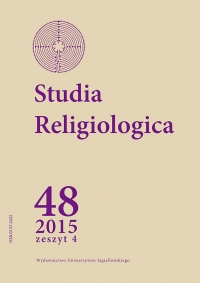Religious Cognition as Social Cognition
Religious Cognition as Social Cognition
Author(s): Hans Van EyghenSubject(s): Religion and science , Applied Sociology, Sociology of Culture, Sociology of Religion
Published by: Wydawnictwo Uniwersytetu Jagiellońskiego
Keywords: cognitive science of religion; social cognition; theory - theory; simulation theory; en-activism;
Summary/Abstract: In this paper, I examine the relationship between social cognition and religious cognition. Many cognitive theories of religion claim that these two forms are somehow related, but the details are usually left unexplored and insights from theories of social cognition are not taken on board. I discuss the three main (groups of) theories of social cognition, namely the theory-theory, the simulation theory and en-activist theories. Secondly, I explore how these theories can help to enrich a number of cognitive theories of religion. The theories I discuss are Stewart Guthrie’s anthropomorphism, Justin Barrett’s hyperactive agency detection device, Jesse Bering’s existential theory of mind, Pascal Boyer’s minds with full strategic access and Tanya Luhrmann’s porous theory of mind. Finally, I look at how enrichment with insights from social cognition can help to combine different existing theories of religious cognition into a unified framework.
Journal: Studia Religiologica. Zeszyty Naukowe Uniwersytetu Jagiellońskiego
- Issue Year: 48/2015
- Issue No: 4
- Page Range: 301-312
- Page Count: 12
- Language: English

